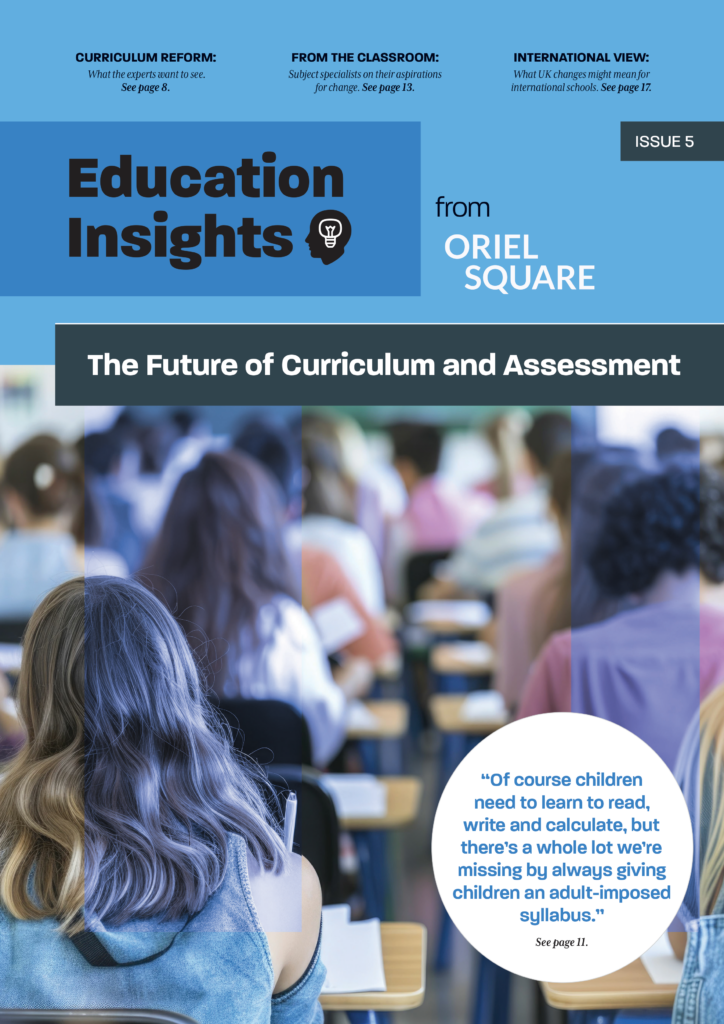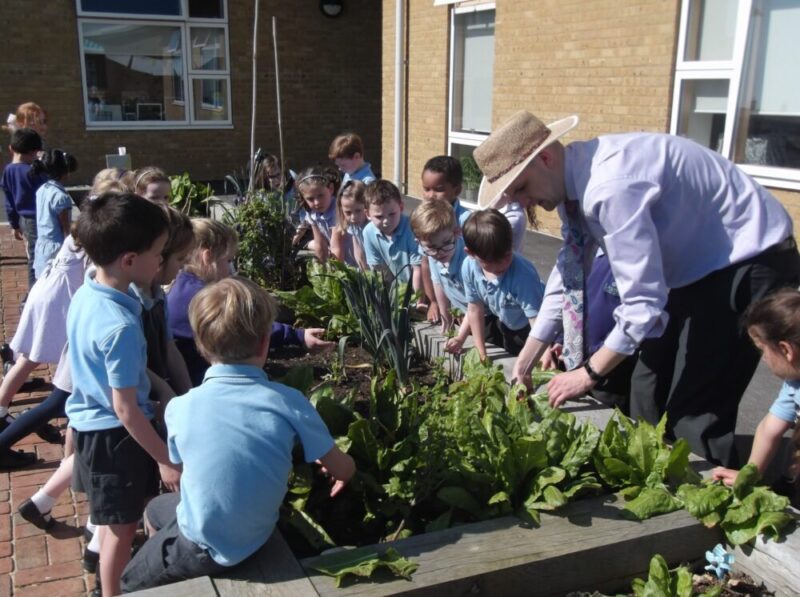This is an extract from Education Insights, Issue 5: The Future of Curriculum and Assessment. Subscribe to read the article in full and unlock access to our quarterly insights reports.
subscribe nowContributors: Claire Gilbert; Paul Turner, Ministry of Eco Education; Edd Moore, award-winning eco-coordinator and Oriel Square’s Classroom Expert for Sustainability; Jamie Agombar and Jodie Bailey-Ho, Students Organising for Sustainability UK.
Paul Turner taught geography for 15 years before becoming education lead at the teacher collective, Ministry of Eco Education.
Q: As a teacher-led charity, what are your aspirations for teaching sustainability?
The Ministry of Eco Education (MEE) was set up to support schools, multi-academy trusts and local authorities with the urgent need for sustainability education. We recognise that teachers don’t need more resources; they need a framework that links resources to their curriculum.
It’s not about adding more content; it’s about linking the real world to abstract material and using relevant examples to help engage young people in sustainability. MEE has rearranged the national curriculum around the big questions, helping schools to teach through an environmental lens and to act where they can have the biggest impact. Sustainability isn’t a list of facts to be taught in discrete subjects; it’s a green thread woven throughout the curriculum, just as literacy and numeracy are. Our mission is to open teachers to the possibility of embedding sustainability in their classrooms and empowering them to do so. Subscribe to keep reading Paul’s interview on a greener curriculum and get Edd Moore’s teacher perspective.
Jamie Agombar is the founding Executive Director of Students Organising for Sustainability UK and was previously Head of Sustainability at the National Union of Students. Jamie is a director of the Aldersgate Group, a trustee of The Harmony Project and a fellow of the Institute of Environmental Management and Assessment.
Q: As a youth-led charity, what are your aspirations for the curriculum review?
Students Organising for Sustainability UK (SOS-UK) and its ‘Teach the Future’ campaign emerged from the 2019 climate youth strikes. We ran a youth-led Mock COP in 2020 which led to us helping to shape the DfE’s 2022 Sustainability Strategy. However, the strategy contained little on climate education, and what was there was siloed; the Natural History GCSE risks being offered to just a small number of students.
We worked closely with the then-shadow government and were pleased with the quick announcement of the curriculum review, and the amount of time given for the consultation. It’s critical that young people are central to the consultation, and that the review isn’t a one-off. Climate, and other fast-evolving areas like digital skills, need a rolling review.
We’re currently convening environmental and educational organisations to coordinate their response to the review, and calling for government to be involved, especially the Department for Energy Security and Net Zero. Delivering net zero requires the public to be educated on the climate, and one of the best ways to do this is through schools. Subscribe to keep reading Jamie’s interview on a greener curriculum and get Jodie Bailey-Ho’s student perspective.
Subscribe to keep reading and unlock full access to our insights reports.


